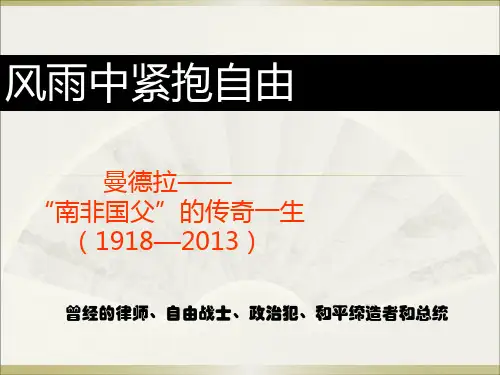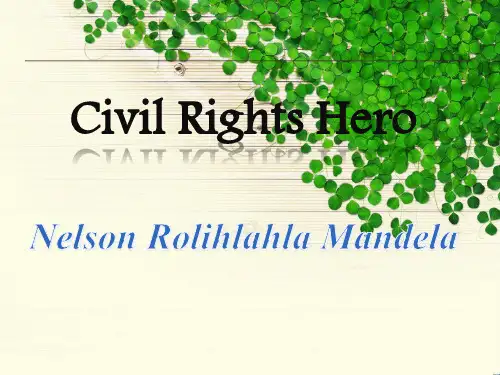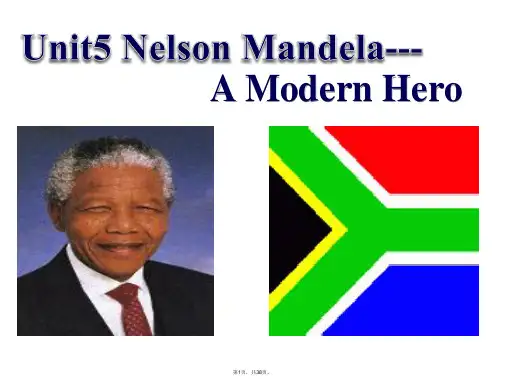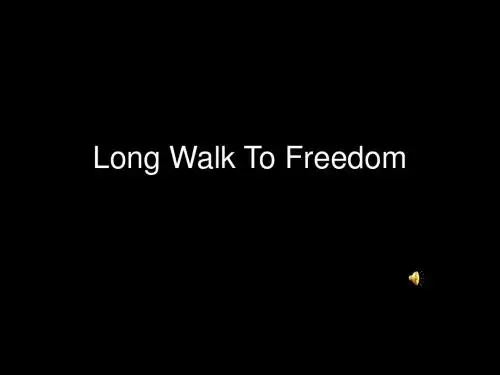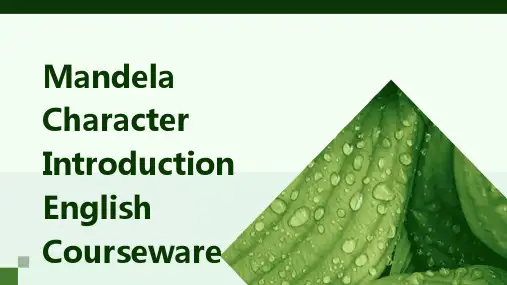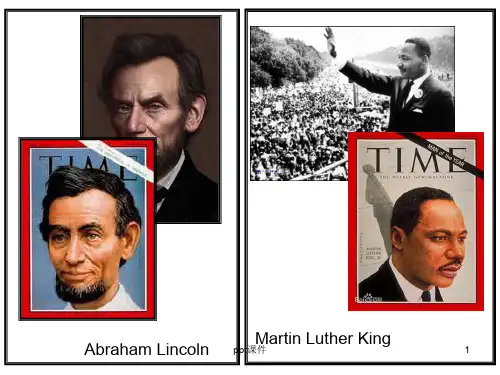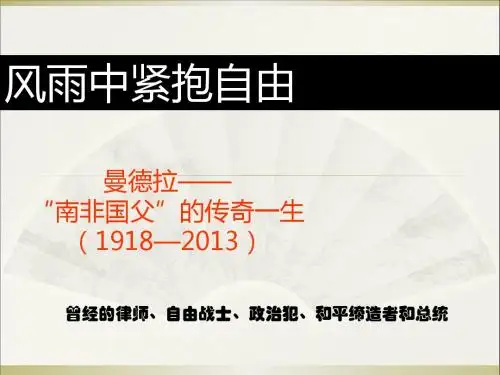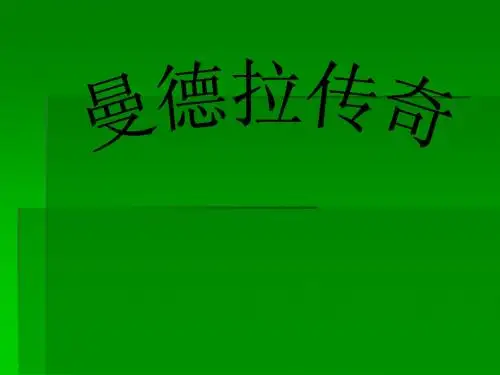- 1、下载文档前请自行甄别文档内容的完整性,平台不提供额外的编辑、内容补充、找答案等附加服务。
- 2、"仅部分预览"的文档,不可在线预览部分如存在完整性等问题,可反馈申请退款(可完整预览的文档不适用该条件!)。
- 3、如文档侵犯您的权益,请联系客服反馈,我们会尽快为您处理(人工客服工作时间:9:00-18:30)。
Concerned that COSAG would undermine the election, particularly in the wake of the conflict in Bophuthatswana and the Shell House Massacre – incidents of violence involving the AWB and Inkatha, respectively – Mandela met with Afrikaner politicians and generals, including P. W. Botha, Pik Botha and Constand Viljoen, persuading many to work within the democratic system, and with de Klerk convinced Inkatha's Buthelezi to enter the elections rather than launch a war of secession.As leaders of the two major parties, de Klerk and Mandela appeared on a televised debate; although de Klerk was widely considered the better speaker at the event, Mandela's offer to shake his hand surprised him, leading some commentators to consider it a victory for Mandela.The election went ahead with little violence, although an AWB cell killed 20 with car bombs. As widely expected, the ANC won a sweeping victory, taking 62 percent of the vote, just short of the two-thirds majority needed to unilaterally change the constitution. The ANC was also victorious in seven provinces, with Inkatha and the National Party each taking another.Mandela voted at the Ohlange High School in Durban, and though the ANC's victory assured his election as President, he publicly accepted that the election had been marred by instances of fraud and sabotage.
So,here comes the question:
Do you know how mass arrests and bloody retaliations were avoided in South Africa when Nelson Mandela was elected president?
Maybe it is a little difficult for us to know how mass arrests and bloody retalitaions were avoided in South Africa When he was elected president on earth,but we can still find some clues because of his winning of the Nobel Peace Prize in 1993. Excerpt(摘要) from the Nobel Peace Prize acceptance speech:
Nelson Mandela
The introduction of Mandela:
Nelson Mandela served as the President of South Africa from 1994 to 1999.He was the first South African president to be elected in a fully representative democratic election.Mandela joined the African National Congress in 1944 and was engaged in resistance against the ruling National Party's apartheid policies after 1948.He went on trial for treason in 1956-1961 and was acquitted in 1961.In 1962 he was arrested and convicted of sabotage and other charges,and sentenced to life in prison.Mandela served 27 years in prison.During his years in prison,Nelson Mandela's reputation grew steadily.After his release from prison in 1990,he plunged himself wholeheartedly into his life's work,striving to attain the goals he and others had set out almost four decades earlier.Mandela led his party in the negotiations that led to multi-racial democracy in 1994.As president,he frequently gave priority to reconciliation,while introducing policies aimed at combating poverty and inequality in South Africa.He is a universal symbol of social justice and an exemplary figure connoting non-racialism and democracy.
The main reason:
anti-apartheid activism
Mandela became the nation's conscience as it healed from the scars of apartheid. His defiance of white minority rule and long incarceration for fighting against segregation focused the world's attention on apartheid, the legalized racial segregation enforced by the South African government until 1994. Former South African President F.W. de Klerk, who was awarded the Nobel Peace Prize with Mandela in 1993 for transitioning the nation from a system of racial segregation, described their first meeting.
―We stand here today as nothing more than a representative of the millions of our people who adred to rise up against a social system whose very essence is war,violence,racism,oppression,repression and the impoverishment of an entire people.‖
This is a small passage from the text book in senior high school:
From this passage,we can conclude that Nelson Mendela did something benificial to the black,to tell the truth,Mendela did many things for the black and the white,and it is the main reason why people avoided so many arrests and bloody retalitations when he was elected.
The background of the election:
With the election set for 27 April 1994, the ANC began campaigning, opening 100 election offices and orchestrating People's Forums across the country, at which Mandela could appear, as a popular figure with great status among black South Africans.The ANC campaigned on a Reconstruction and Development Programme (RDP) to build a million houses in five years, introduce universal free education and extend access to water and electricity. The party's slogan was "a better life for all", although it was not explained how this development would be funded. With the exception of the Weekly Mail and he New Nation, South Africa's press opposed Mandela's election, fearing continued ethnic strife, instead supporting the National or Democratic Party.Mandela devoted much time to fundraising for the ANC, touring North America, Europe and Asia to meet wealthy donors, including former supporters of the apartheid regime. He also urged a reduction in the voting age from 18 to 14; rejected by the ANC, this policy became the subject of ridicule.
